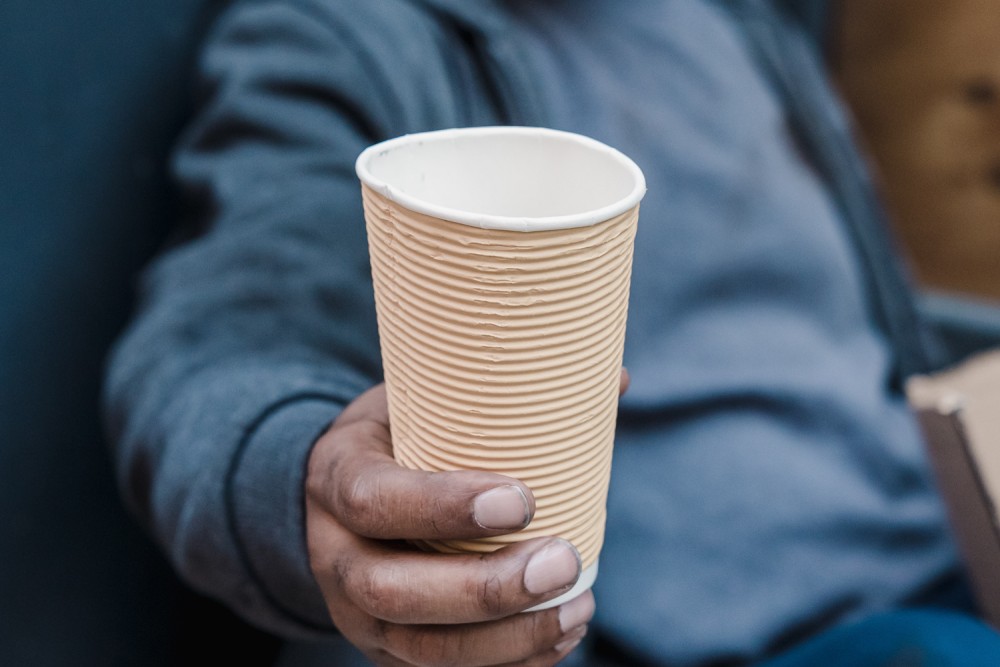Give to the one who asks of you
I’m on this man’s side, even though I didn’t give him any money. Right?

(Photo by Timur Weber / Pexels)
After an evening with friends at a bar, as we say our goodbyes on the sidewalk a man approaches us. “I’m sorry to bother you, but I just need a few dollars to help pay for a place to stay tonight.” We listen patiently as he explains his situation. I slip my hand into my pocket and fiddle with my wallet. I don’t think I have any cash, I never do these days, but I’m hoping for something small to give—a single would be great. If I had to, I could spare a five. After all, that was the cost of my beer, money that would have been better spent on a human being in need.
After his plea, he waits while we search for money but come up with just credit and debit cards. He is gracious. “Nobody’s got cash anymore,” he shrugs. There is a restaurant across the street that takes credit cards, so I ask if we could buy him dinner. “Thanks, but food’s not going to get me a place to stay,” he says, gently reminding me of his request, his specific need, and I realize that I’m looking for absolution, for him to let me off the hook. He knows what I know: that there is an ATM around the corner and another back inside the bar. None of us offers to use the debit cards in our hands to make a withdrawal, to give him a $20, the lowest possible denomination. “All right,” he glances around our circle, “have a good night.”
As we walk away, I run through self-justifying arguments in my head, trying to convince myself that I’ve done what I can, despite my refusal, because I voted for the $95 million affordable housing bond a few years ago. I’ve added my voice to deliberations about providing shelters to keep up with the growing need. The market’s invisible hand never prioritizes affordable housing. Between 2018 and 2022, the average rent for an apartment in our bustling region jumped from $1,034 to $1,370 and the median price of a house jumped from $250,000 to $415,000.




